
You can thank the pandemic for giving all of us a crash course in infectious disease and personal hygiene—good things, for sure, but with a significant impact on how we should interact with each other.
“People are much more aware of how viruses and bacteria are transmitted than before,” says Bill Miller, MD, PhD, MPH, professor of epidemiology at The Ohio State University College of Public Health. “They know that germs can be spread through the air, by contact, or by food.”
But being faced with a possible handshake is a prime example: what are you supposed to do? These new social norms can be confusing. So Dr. Miller, along with etiquette experts Rachana Adyanthaya and Julia Esteve Boyd, shared with The Healthy @Reader’s Digest what social norms have changed for good…and a few that didn’t change, but honestly should have.
The #1 most important health etiquette rule
From a public health perspective, Dr. Miller says rule number-one of interacting with others is understanding that infectious diseases come with a two-way responsibility. “Because they can be transmitted from one person to another, it isn’t just about protecting yourself but is also about protecting someone else—and this is true for any disease, not just Covid,” he explains. “A simple saying is helpful: ‘With infections, my health is your health and your health is my health.'”

Polite social norms that Covid-19 effectively changed
Air-kissing or cheek-kissing as a greeting
Americans don’t do this quite as much as some Europeans, but it was still a thing—particularly in New York, Hollywood, and some social circles. Not anymore, says Adyanthaya.
Kissing, whether you’re actually making contact with someone’s cheek or just air-kissing, has changed, she says. Now it’s only considered polite to use with very close friends and family and is quickly going out of favor there in some cases, as well. Close physical contact, breathing, and saliva can all carry germs. Stick to more distanced greetings.
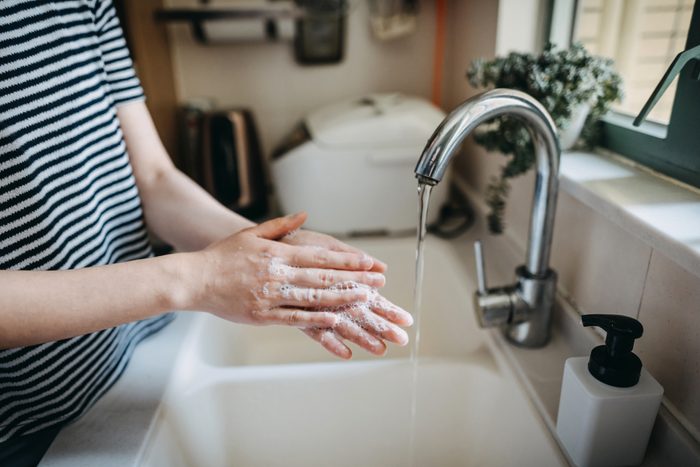
Hand-washing exclusively after using the bathroom
Washing your hands after using the restroom has always been considered polite (and necessary!), but the pandemic taught us that most of us were not washing our hands properly, nor often enough.
These days, it’s considered good practice to wash your hands or use hand sanitizer after many activities, including grocery shopping, going to the gym, any time you return home, and even shaking hands. In nearly all cases, it also can’t hurt to apply hand sanitizer from the dispenser that many stores and restaurants businesses now offer at their entry points, as well as after exchanging money or credit cards when you pay a tab or make a purchase.

Heading into work when you’re sick
Remember the days when the work culture in America used to reward working through an illness, seeing it as a sign of dedication and even strength?
Thankfully, showing up to the office at all costs is definitely not best practice anymore, says Dr. Miller. Today, many employers recommend their under-the-weather workers should stay home—or in some cases, quarantine—to avoid spreading germs to coworkers. It’s encouraging to see a greater understanding that when the team is down, so is productivity.
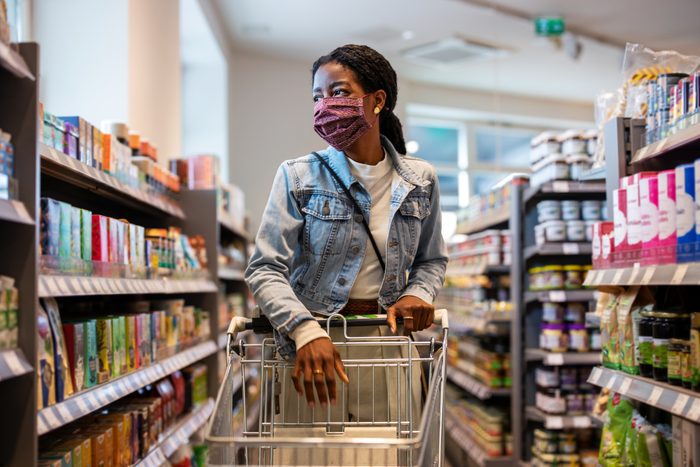
Mask-wearing limited to the immunocompromised
Wearing a mask in public pre-pandemic often earned you some strange looks and even uncomfortable questions about what was “wrong” with you. Now, seeing others wear masks is normalized, and most people won’t give you a second look, much less question it, says Boyd.
Especially during times of year when a lot of people gather in closed spaces, such as school plays or during holiday shopping, mask-wearing can be a highly effective way to avoid spreading or contracting airborne infections, like flu and Covid.
The Red Cross Says Doing This Is Essential After Your Flu Shot & Covid Booster

Hugging
There are health benefits to hugging, but in the wake of a pandemic, hugging people as a greeting is definitely out of vogue, says Adyanthaya.
Hugs aren’t totally off the table—brief physical contact like a hug is less likely to spread germs than kissing or shaking hands—but, say our pros, you should always ask another individual if they are comfortable with a hug before going in.
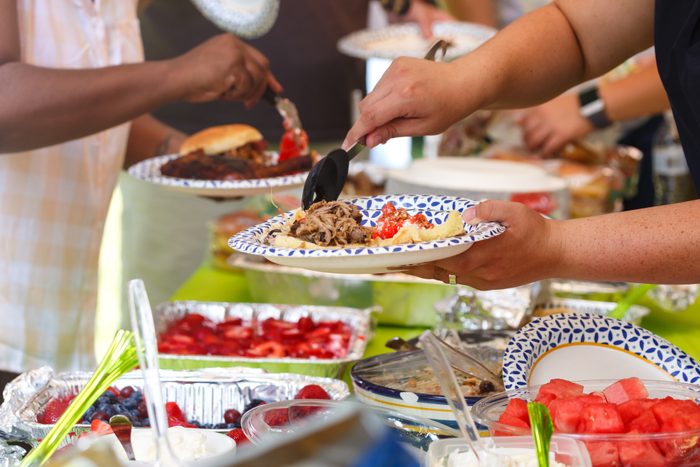
Sharing food with a group in public
Dr. Miller says gone are the days of leaving a whole cake with a serving knife in the breakroom, neighborhood potlucks at the park, communal coffee pots, and buffet lunches at the office (and many buffets in restaurants, as well).
Instead, this epidemiologist recommends taking advantage at places that now offer individually packaged options with disposable plates, cups, and utensils to avoid cross-contamination and germ-spreading. It may also be wise to hang onto these packaged items when you get a surplus of them with a takeout order to stock your car or your purse so you have them handy when you need them. (Also so much better than creating waste by tossing them unused.)
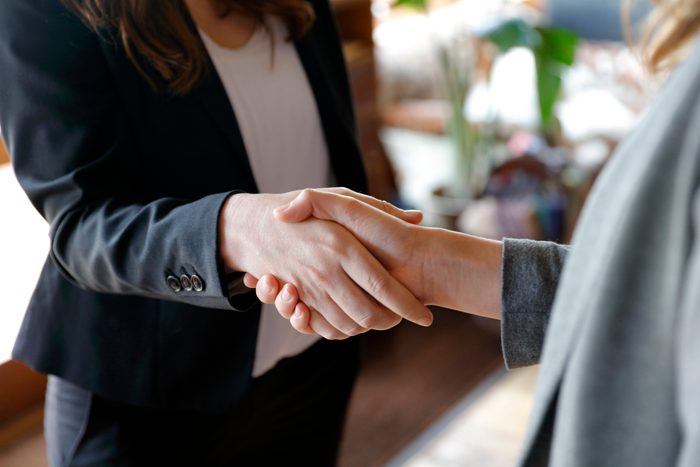
Germ-swapping polite social norms that Covid-19 didn’t change—but should have
Shaking hands
“Old habits die hard,” says Boyd, “and shaking hands is one of those things that is making a comeback after the pandemic.”
Still, says Dr. Miller, hand-to-hand contact is a great way to spread germs—especially if you touch your face or mouth afterward, as many people do instinctively. Instead, try a small bow with hands clasped together or a wave with a big smile. Either of these choices can be a gracious greeting, while effectively making your point that you’re no longer a hand-shaker.

High-fives or fist-bumps
A slap of the palms or a fist-bump might be slightly less germy than clasping hands in a handshake…but if you truly want to avoid contamination, it’s best not to engage in any physical contact at all, says Dr. Miller.
And let’s not forget that while many people have improved their hand-washing game, there are plenty who still haven’t—and you can’t tell how germy someone’s hands are just by looking at them.
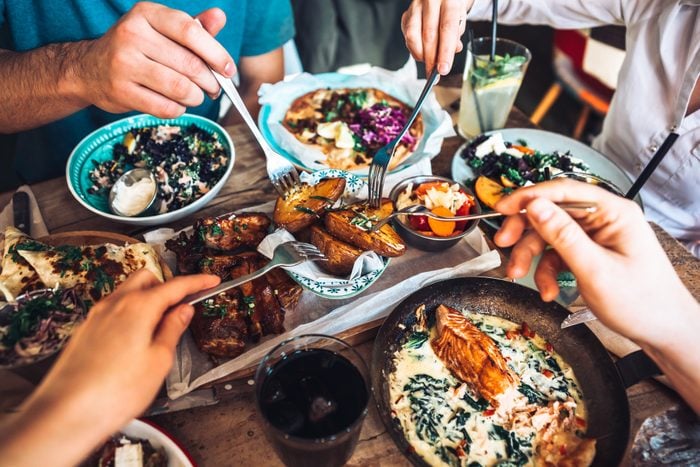
Offering up a bite of your dinner or a sip of your coffee
Sharing food or drink is a sign of closeness, intimacy, and trust, as well as a fun way to taste something new—which all make this habit harder to break, says Adyanthya.
However, many illnesses are transmitted through saliva or food. If you’re sharing a bite with a romantic partner whom you kiss goodnight, OK. But for friends, extended family, and others, these authorities suggest you use a clean utensil to cut off a piece of the uneaten portion and place it on the other person’s plate. Don’t ever offer food with your fingers or share drinks.
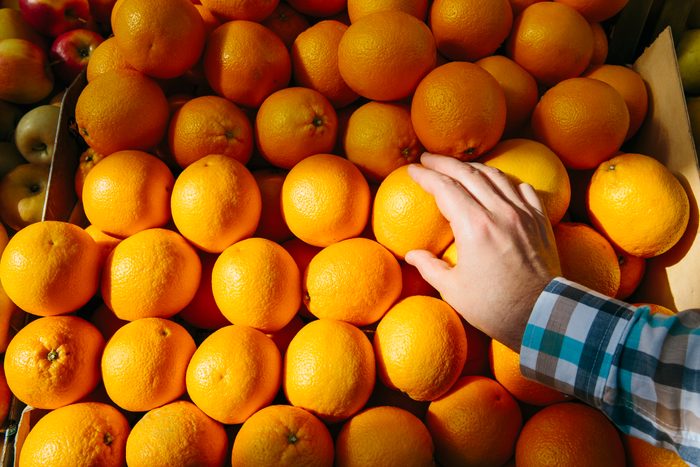
Touching produce at the store
How many other shoppers picked up that apple to examine it before you did? It’s OK to be choosy about your produce—but slide the produce bag over your hand as a glove so you’re not touching fruits and veg your bare hands—and don’t put back food that you have touched, says Boyd. Not only do you risk passing on germs, but fresh produce can infect you, too (which is why you should always wash produce before eating).
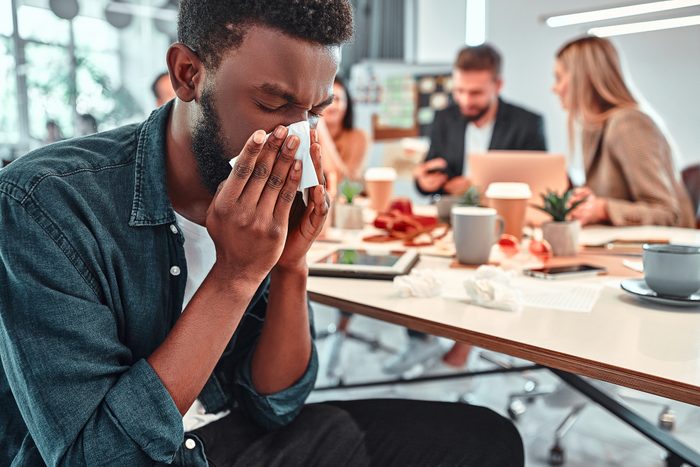
Not wearing a mask when you’re sick
Now that mask-wearing requirements have been lifted in most places, many people see that as a “get out of mask-wearing free” card.
Not so, says Dr. Miller. Wearing a mask when you experience any type of symptoms is protective for you, and others. He says this is a practice that should be normalized.
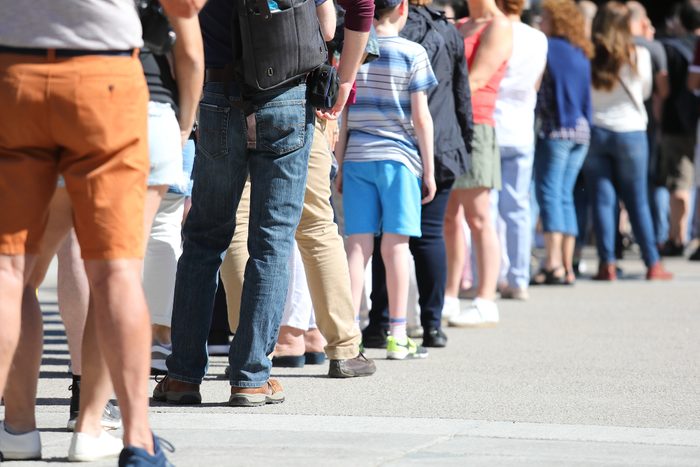
Grouping closely in lines
Standing six feet apart in lines was another new practice that Covid introduced. But, says Adyanthaya: “Pandemic norms made the process of standing in lines so much easier and smoother, but now we’re seeing a return to pushing, standing too close, grouping, and other chaos,” she says.
If that sounds familiar during holiday shopping season, give yourself a little extra time to let the line calm down, or feel free to dip out and make your purchase online.
For your daily dose of wellness, get The Healthy @Reader’s Digest newsletterandfollow The Healthy on Facebook, Instagram, and Twitter. Keep reading:
